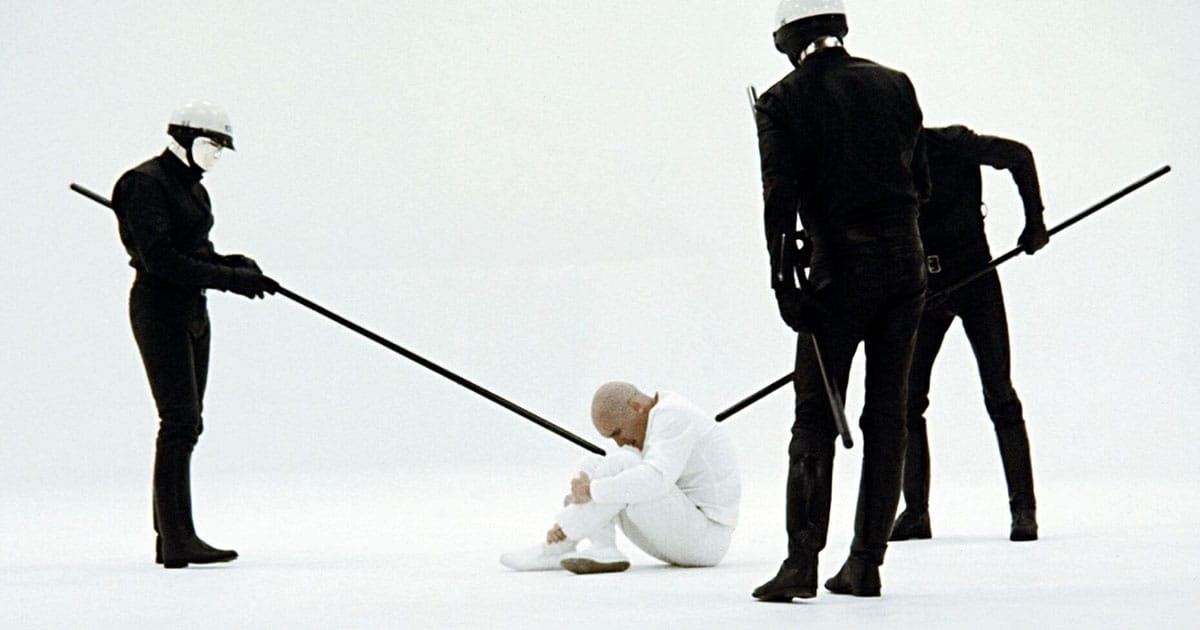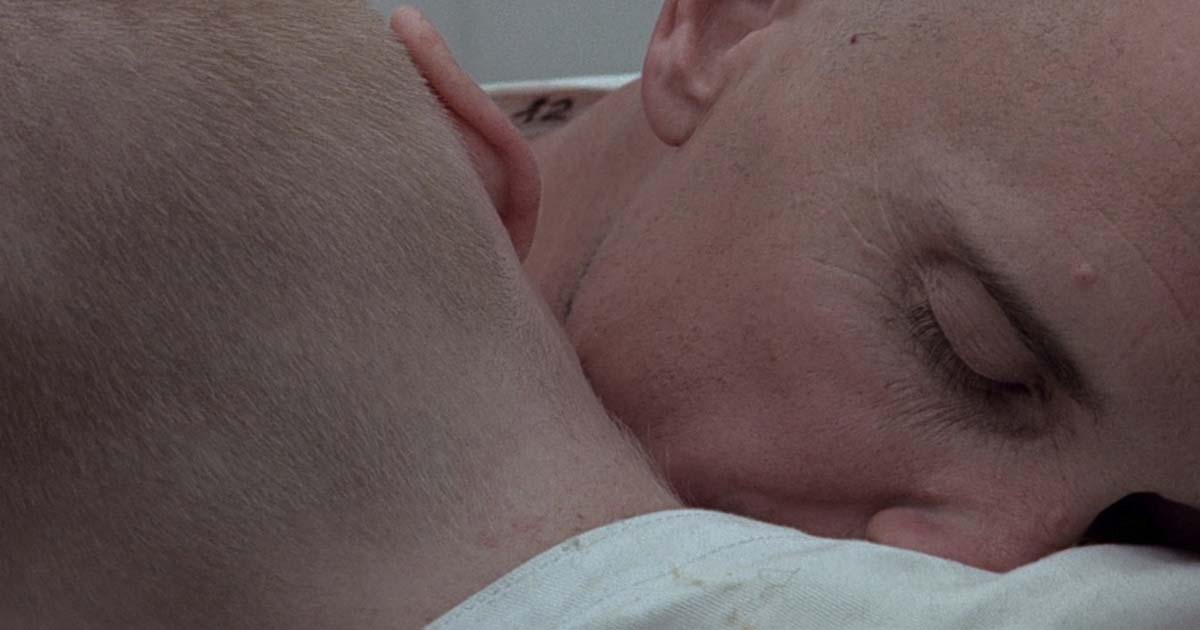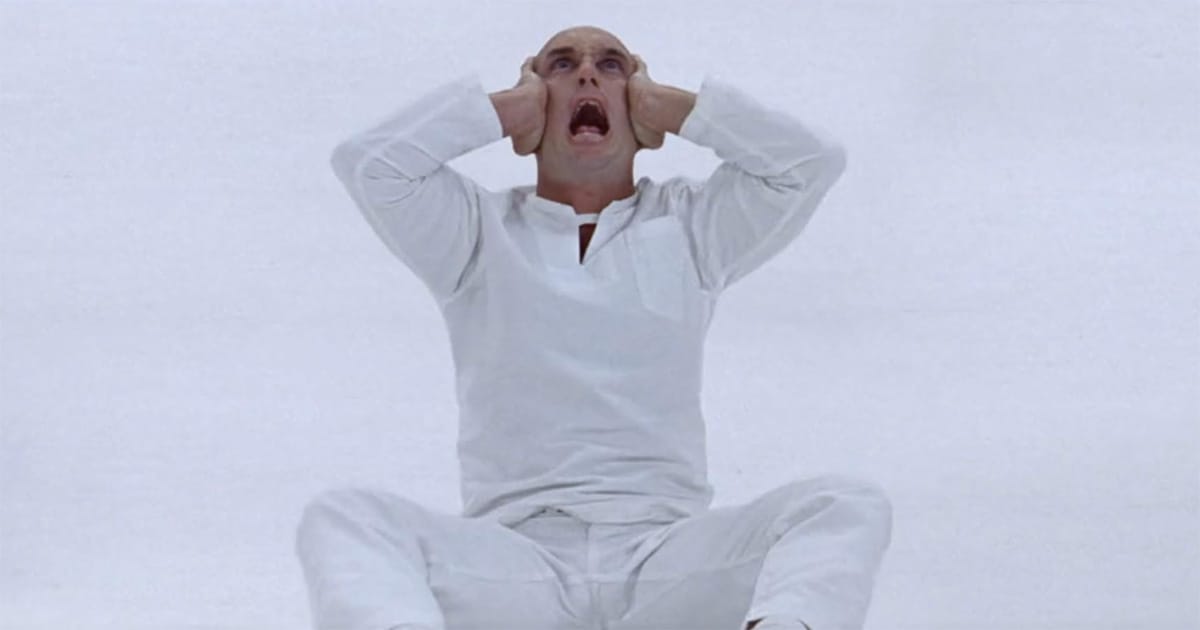The Dystopian Vision of "THX 1138"
A dystopian world without identity or free will, "THX 1138" presents a chilling vision of control.

This Week in Classic Science Fiction — "THX 1138" Released
On March 11, 1971, audiences were introduced to George Lucas's first feature film, "THX 1138." A stark, dystopian vision of the future, the film presented a world where individuality is erased, emotions are chemically suppressed, and an omnipresent authority monitors society.
Though not an immediate success, "THX 1138" would later be recognized as a critical piece of science fiction cinema, influencing countless dystopian films that followed.
The film's themes resonate deeply with science fiction fans. Set in an underground city where humans exist solely to serve the system, "THX 1138" explores the loss of personal freedom, the dangers of unchecked technological control, and the quiet rebellion of the human spirit. Inspired by Orwell's "1984," Huxley's "Brave New World," and the societal unrest of the late 1960s, Lucas crafted a film that reflects both its time and the anxieties of a modern technological society.
Despite a lukewarm reception upon release, "THX 1138" gained a cult following over the years. Its minimalist aesthetic, unsettling use of sound design, and its influence on later works, from "Blade Runner" to "The Matrix," have cemented its status as a thought-provoking classic.
For fans of classic science fiction, "THX 1138" is an intellectual and artistic achievement. It asks difficult questions about the role of technology in society, the value of free will, and the cost of rebellion. If you haven't revisited it in a while, now is the perfect time to see why this bleak vision of the future still matters today.
Escaping the Machine—Rebellion in "THX 1138" and Classic Sci-Fi
Few science fiction films present a future as dehumanizing as "THX 1138." Society is not just controlled—it is engineered to function without individuality, emotion, or autonomy.
In this stark landscape, THX 1138 lives as a cog in the machine, performing his duties without question—until an act of nonconformity sparks his awakening. His path from submission to defiance mirrors a recurring theme in dystopian science fiction: the moment when a character realizes he is trapped and dares to seek freedom.
Oppressive Systems
Dystopian science fiction thrives on depicting totalitarian systems that strip individuals of autonomy.
These worlds are defined by their ability to control every aspect of life—governments dictate thoughts, suppress emotions, and reduce personal freedom to an illusion. Whether by brute force, as in Orwell's "1984," or through engineered contentment, as in Huxley's "Brave New World," dystopian fiction examines the ways authority can turn people into obedient subjects without their consent.

In "THX 1138," the state enforces obedience through surveillance, mind-numbing drugs, and dehumanizing labor. Compliance is not just expected; it is biologically enforced, with citizens medicated into passivity. With every aspect of life reduced to mechanical precision, individuals cease to think, dream, or question—becoming mere instruments of the system.
The role of the individual in these stories raises an unsettling question. Is it still oppression if no one remembers what freedom feels like? In "Brave New World," citizens are conditioned from birth to embrace their roles, while in "1984," fear compels conformity. Whether through sedation or terror, dystopian societies remove the very concept of resistance. Without an awareness of choice, rebellion seems impossible.
The power of dystopian fiction lies in how it forces the audience to recognize these mechanisms in their own societies—whether in corporate influence, mass surveillance, or the quiet pressure to conform. By exploring how these worlds suppress individuality, these stories warn us about the cost of convenience and stability when it comes at the expense of human will.
Rebellion Psychology
The first step toward rebellion is awareness, but awakening is rarely immediate or easy.
Dystopian science fiction often follows a protagonist who has lived comfortably—if numbly—within a system of control, only to have his world unravel piece by piece. THX 1138, much like Winston in "1984" or Neo in "The Matrix," begins with a gnawing sense of wrongness.
At first, the feeling is vague, an unease lurking beneath the surface of daily existence. Only through small acts of disobedience, often accidental at first, does he begin to glimpse the true nature of his oppression.
Psychologists call this process cognitive dissonance—the uncomfortable tension between what one has always believed and new, conflicting realities. Dystopian stories dramatize this mental struggle.
In "Brazil," Jonathan Pryce's character is jolted from compliance by love, an emotion that reveals the cracks in his society. In "Gattaca," Vincent Freeman refuses to accept a world where genetics dictate fate, relying instead on sheer determination to overcome systemic barriers. Each of these characters experiences an internal war before they ever take physical action—breaking free from mental conditioning before challenging the system itself.
This psychological journey is what makes dystopian fiction compelling. It forces the audience to consider whether they, too, are accepting a version of reality that is incomplete or manipulated. It asks whether the first act of defiance is not storming barricades, but simply daring to question the world as it is presented.

Free Will Debate
If dystopian science fiction explores control, then rebellion is fundamentally a search for free will.
The genre often presents a world where every action is predetermined—where technology, governance, or societal structures dictate what a person can and cannot do.
In these stories, defiance is about resisting authority and proving that individual choice still exists. "THX 1138" suggests that even in a world where every decision is monitored and chemically regulated, escape is possible because the will to act remains buried within.
Many dystopian narratives ask whether free will is an illusion. "Minority Report" envisions a society where crimes are prevented before they happen. If an individual is destined to act a certain way, can he choose another path? "Equilibrium" takes it further, depicting a world where emotions are outlawed, suggesting that true choice may not exist without feeling. The tension in these films lies in whether rebellion is a matter of destiny or an act of sheer defiance against overwhelming odds.
Ultimately, dystopian science fiction forces audiences to consider their own autonomy.
In an age where algorithms predict behavior, social structures influence decisions, and technology subtly curates reality, the question of free will remains as relevant as ever.
Do we make our own choices, or are we simply following the path laid out for us? The genre challenges us to reflect on how much of our lives are dictated by external forces—and whether we, like THX 1138, have the courage to break free.
"THX 1138" Trivia
- Origins in Student Film – "THX 1138" was based on George Lucas's 1967 student short film, "Electronic Labyrinth: THX 1138 4EB," which won first prize at the National Student Film Festival and caught the attention of Hollywood producers.
- The Meaning of THX 1138 – The film's title has sparked speculation. Some believe it references Lucas's phone number at USC, while others see it as an arbitrary code. Over the years, Lucas incorporated "1138" into many of his films as a hidden Easter egg, including "Star Wars."
- Robert Duvall's Intense Filming Experience – Lead actor Robert Duvall had to shave his head for the role, which was a significant commitment at the time. The film's stark, minimalist sets and real-world shooting locations, including the unfinished tunnels of the Bay Area Rapid Transit system, added to the film's unsettling realism.
- A Box Office Disappointment – Despite critical praise for its vision and ambition, "THX 1138" was a commercial failure upon release. Warner Bros. heavily edited the film, and audiences at the time struggled with its experimental style. It was only after the success of "Star Wars" that "THX 1138" gained a cult following.
- Lucas's Director's Cut Controversy – In 2004, Lucas released a digitally altered "THX 1138" with new CGI effects and extended scenes. While some praised the enhancements, others criticized them as unnecessary, mirroring the controversy surrounding the "Star Wars" Special Editions.

